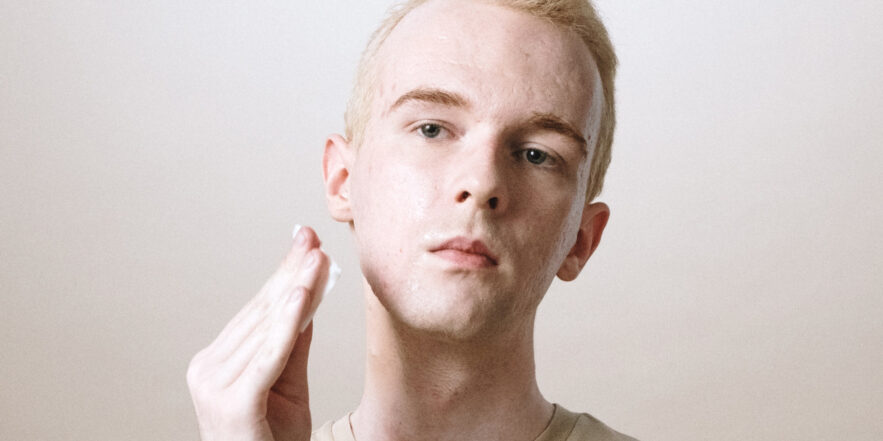Skin does so much — it protects us from germs, ultraviolet radiation, viruses and infections. It helps regulate body temperature and acts as an immune warning against infections.. It’s no wonder we often assume that products applied to the skin can’t hurt it. Some, including Proactiv, have serious side effects.
Unfortunately, skincare products are an area the FDA doesn’t tightly regulate, despite the fact that many skincare products contain ingredients that can be harmful to our health. Many people aren’t aware that over-the-counter acne treatments list only the more common side effects on their product labels — they fail to inform people of rare but very serious side effects that can occur and that you should be on the lookout for..
Here we explore a well-known acne treatment brand—Proactiv.
Browse This Article
Proactiv Acne Treatment
Proactiv has several 3-step skincare lines based on the active ingredients benzoyl peroxide, glycolic acid (an alpha hydroxy acid), hyaluronic acid and salicylic acid. The most basic of Proactiv’s multi-step systems works via “the low-concentration benzoyl peroxide cleanser, an alcohol-free toner, and the low-concentration salicylic acid lotion,” says board-certified dermatologist Dr. Jessie Cheung. “The same exact ingredients are available much cheaper at the drugstore, but not as a simple 1-2-3 step program.”
What Causes Acne?
Cheung explains, “Acne is a culmination of clogged pores, oil and bacteria, but it is fundamentally triggered by inflammation.”
The bacteria present in the skin’s pores is known as propionibacterium acnes (P. acnes). Benzoyl peroxide has an antibacterial effect on P. acnes, acts as an anti-inflammatory agent, and as a peeling agent that sheds the skin’s exterior.
Is Proactiv effective?
“Proactiv is effective for mild acne,” says Dr. Cheung. “Since it kills off the acne-causing bacteria, benzoyl peroxide is a very commonly prescribed medication for acne.” In fact, because studies have shown it to be so effective, the American Academy of Dermatology recommends benzoyl peroxide as a first-line acne treatment.
A few small clinical trials have shown Proactiv or similar products to be effective at reducing the number of acne lesions by an average of 27% and reducing red, inflamed skin by 10%. It should be noted, however, that these studies have been sponsored by Proactiv’s manufacturer, and therefore may contain bias.
For people with skin of color, the American Academy of Dermatology Association suggests using products that contain benzoyl peroxide and a retinoid. “This means buying two different products, but this combination works well in skin of color. The retinoid helps to unclog pores and reduce inflammation. It can clear pimples, blackheads, and whiteheads. A retinoid can also prevent new breakouts.
Benzoyl peroxide can remove the bacteria that cause acne. If you’re worried about it causing light spots on your skin, don’t be. That’s a myth. It won’t. However, it will bleach clothing, sheets, pillow cases, and towels.”
Side Effects of Proactiv
Clinical trials have shown at least 50% of people have some type of adverse reaction. These are mainly dryness, skin infections and infestations and nasopharyngitis (swelling of the nasal passage and back of the throat). A few people in trials have also experienced burning at the application site, influenza, sinusitis and gastroenteritis.
“Even though Proactiv has these active ingredients in a very low concentration, the products can still be irritating,” says Cheung. “The most common complaints that I have heard are dry and flaky skin.
“People should be aware that with most acne treatments, you may see an initial flare-up when starting treatment, as cell turnover speeds up. But skin should begin to clear up after the first few weeks. If it gets even worse, the products may be irritating the skin too much,” adds Dr. Cheung.
While the majority of people won’t see more than the common side effects mentioned by Dr. Cheung, there are other rare but serious side effects to be aware of.
The FDA has issued consumer warnings about potentially severe side effects that products such as Proactiv do not list on the product label. There have been 131 severe allergic and hypersensitivity reactions to these products, with 44% of these requiring hospitalization.
The severe allergic reactions reported include throat tightness, shortness of breath, wheezing, low blood pressure, fainting or collapse. These have arisen within minutes and up to 24 hours of application. People have also reported hives, swelling of the eyes, face and lips, and itching of the face or body (even on parts of the body where there was no application of the product). It’s unknown exactly what substance in the product causes these adverse reactions. But if you experience any of these severe side effects, seek immediate medical attention.
Not all allergic responses are life threatening. If you have had a previous allergic or hypersensitivity reaction to a product with benzoyl peroxide or glycolic acid in it, Mona Khurana, MD, a medical officer at FDA, recommends if you avoid using any product with those ingredients and to stop using the product if you develop hives or itching of the face or body.
If you have an allergic reaction or other side effect from Proactiv or any skin product, report it to the FDA’s MedWatch program to help protect other people.
And be cautioned: If you’re already using an acne treatment or prescribed skincare product, it’s advised to consult a doctor or dermatologist to ensure there is no clash between the products that could cause a negative reaction.
What Is the Most Effective Acne Treatment?
Dietary changes can help address the systemic inflammation that causes acne. For instance, “a high-fat, high-sugar diet increases systemic inflammation and results in an increase in a hormone called cortisol,” says cosmetic and dermatologic surgeon Dr. Ariel Ostad. “Cortisol is responsible for an increase in oil gland production, thus increasing acne breakouts.”
“It’s important to eat low-glycemic carbohydrates to control inflammation,” adds Ostad. He suggests eating complex carbohydrates such as sweet potatoes, quinoa and steel-cut oats, along with plenty of fresh vegetables for their antioxidant content and anti-inflammatory properties.
For skin outbreaks that are still troubling you after dietary changes, “most dermatologists would agree that any acne treatment regimen should include a retinoid and topical antibiotic,” says Cheung. “If the acne fails to respond to that, adding an oral antibiotic or anti-androgen is usually the next step.
“For severe cases of acne, the most effective treatment is Accutane, but we reserve this medication for severe cases of acne only, since monthly monitoring with blood tests is required as it can affect the liver and cholesterol,” adds Cheung. (See our article on Accutane, which has many concerns.)
In short, you can probably achieve similar results to Proactiv by using other over-the-counter acne medications that cost a lot less. Also, making certain dietary changes may help to reduce acne on your face, and doesn’t have any side effects to worry about. And eating better has other health benefits, too.
Sources:
http://jddonline.com/articles/dermatology/S1545961613P0180X/1
https://www.ncbi.nlm.nih.gov/pubmed/23545906
https://www.ncbi.nlm.nih.gov/pubmed/281158







